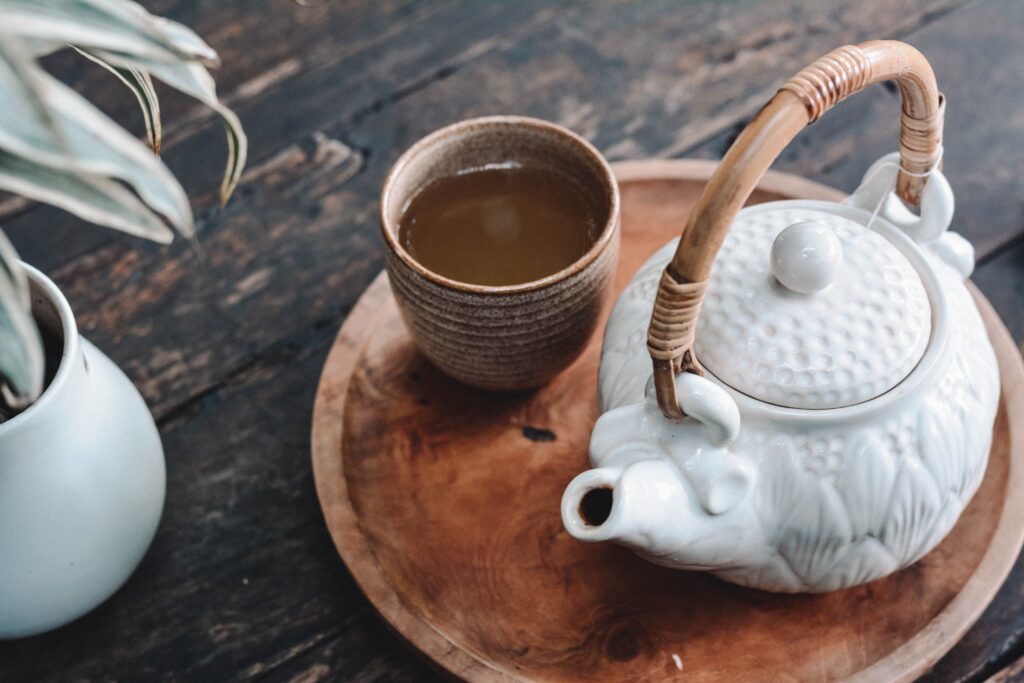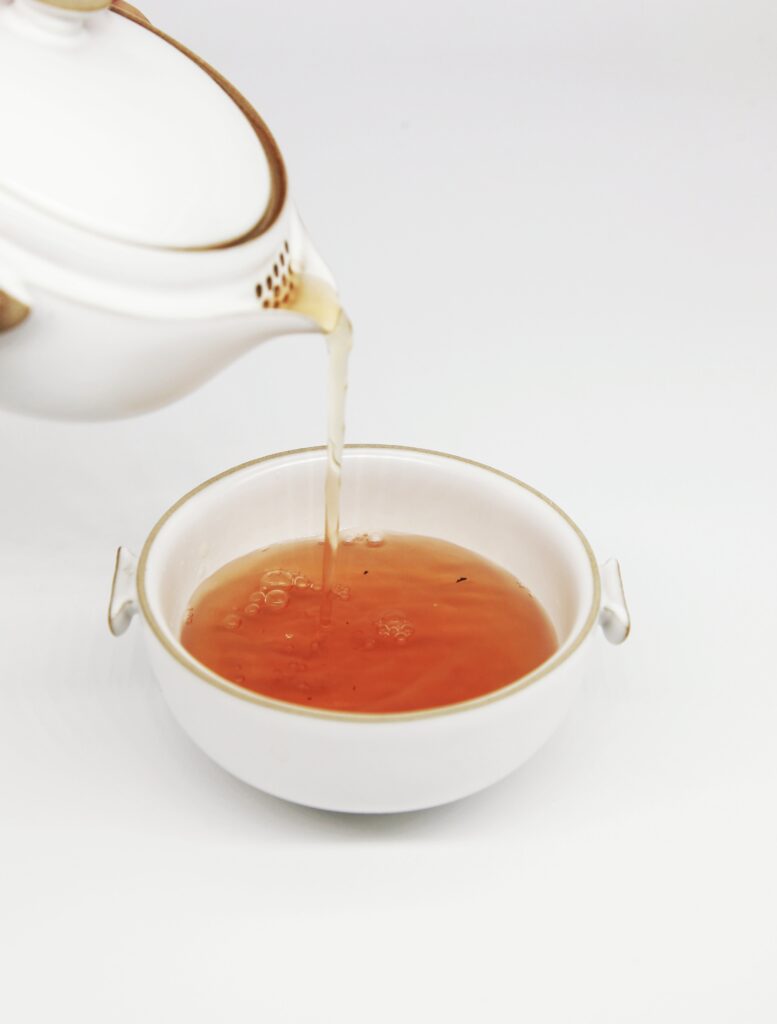Table of Contents

Can you drink tea while fasting?
When it comes to fasting, there are different approaches and guidelines depending on the specific type of fast you’re following. In general, if you’re doing a water fast, the idea is to abstain from consuming anything other than water for the designated fasting period. However, some people do allow certain beverages during their fasting window, and tea happens to be one of them for many individuals.
The good news is that most types of tea, such as herbal tea, green tea, or black tea, contain very few calories if any at all. Therefore, they are often considered acceptable to drink while fasting. However, it’s important to note that adding any sweeteners, milk, or cream to your tea would break your fast, as these can add calories and potentially stimulate your digestive system.
If your goal is to maximize the benefits of fasting, it’s generally recommended to stick to plain, unsweetened tea during your fasting window. This way, you can enjoy the flavors and potential health benefits of tea while still maintaining the fasting state.
Of course, it’s worth mentioning that individual experiences may vary, and different fasting protocols have different rules. If you’re following a specific fasting regimen for medical or religious reasons, it’s always a good idea to consult with a healthcare professional or religious authority to ensure you’re following the guidelines correctly.
Ultimately, whether you choose to drink tea while fasting or not is a personal choice, and it’s important to find an approach that works best for you and aligns with your specific fasting goals.
Can you drink tea while water fasting?
The topic of drinking tea while water fasting is quite interesting. While water fasting traditionally involves consuming only water during the fasting period, there are differing opinions on whether the tea is permissible or not.
Some purists argue that anything other than water disrupts the purity of the fast and may interfere with the intended benefits. According to this viewpoint, the goal is to give your body a complete break from anything that requires digestion or triggers metabolic processes, including the compounds found in tea.
It’s important to note that teas with added ingredients like sweeteners, milk, or cream would technically break a water fast, as they introduce calories and potentially disrupt the metabolic state of fasting.
Benefits of Drinking These Teas While Fasting
1.Matcha tea
Matcha is a powdered form of green tea that is made by grinding specially grown and processed green tea leaves. It provides a concentrated dose of antioxidants, including catechins, which are known for their potential health benefits. Matcha also contains a moderate amount of caffeine, providing a sustained release of energy without the abrupt spikes and crashes often associated with other caffeinated beverages. While fasting, matcha can be a flavorful and invigorating choice, supporting mental alertness and overall well-being.
2. Licorice tea
Licorice tea is made from the root of the licorice plant and has a naturally sweet taste. It doesn’t contain any calories, making it a popular choice for those who want a sweet-tasting beverage during fasting without breaking their fast. Licorice tea may help soothe the stomach and promote digestive comfort, making it a suitable option for individuals experiencing gastrointestinal issues while fasting.
3. Rooibos Tea
Rooibos tea is a caffeine-free herbal tea derived from the leaves of the rooibos plant. It is known for its unique sweet and nutty flavor. Rooibos tea is packed with antioxidants, including quercetin and aspalathin, which may have anti-inflammatory properties and contribute to overall health. It can be a soothing and enjoyable option during fasting.
4. Chai Tea
Chai tea is a blend of various spices, typically including cinnamon, cardamom, cloves, and ginger, combined with black tea. The combination of spices adds warmth, depth, and complexity to the flavor. Chai tea can provide a sensory delight during fasting, and the spices used, such as ginger and cardamom, may also have digestive benefits.

5. Oolong Tea
Oolong tea falls between green and black tea in terms of oxidation levels. It offers a unique flavor profile that can vary from light and floral to rich and toasty. Like other teas, oolong tea contains antioxidants that may contribute to overall health. While fasting, enjoying a cup of oolong tea can provide a pleasant and flavorful experience.
6.Black tea
Black tea is rich in antioxidants called polyphenols, which have been associated with various health benefits. These antioxidants may help protect against cell damage and promote overall well-being. Additionally, black tea contains a moderate amount of caffeine, which can provide a gentle energy boost and help you stay alert during your fasting period.
7. Green tea
Green tea is well-known for its abundant antioxidants, particularly a type called catechins. These compounds have been studied for their potential role in supporting metabolism and weight management. Green tea also contains a smaller amount of caffeine compared to black tea, making it a popular choice for those looking for a milder stimulant effect during fasting.
8. Ginger tea
Ginger tea is made from the root of the ginger plant and has a distinct, spicy flavor. It has long been used to soothe digestive discomforts, such as nausea, indigestion, and bloating. Drinking ginger tea while fasting may help alleviate any stomach-related issues that can sometimes arise during fasting periods.
9. Chamomile tea
Chamomile tea is renowned for its calming properties. It contains an antioxidant called apigenin, which may help reduce anxiety and promote relaxation. During fasting, when you may experience occasional stress or difficulty sleeping, sipping on chamomile tea can provide a sense of calmness and support better sleep quality.
10. Hibiscus tea
Hibiscus tea is made from the vibrant flowers of the hibiscus plant. It has a tart flavor and is rich in antioxidants, including anthocyanins. These antioxidants may help support heart health and regulate blood pressure levels. Incorporating hibiscus tea into your fasting routine can provide a refreshing and potentially beneficial beverage option.
11. Peppermint tea
Peppermint tea is known for its cooling and refreshing properties. It contains menthol, a compound that can help relax muscles and soothe the gastrointestinal tract. Drinking peppermint tea while fasting may help alleviate symptoms like bloating, gas, and indigestion, making your fasting experience more comfortable.
12. Moringa tea
Moringa tea is made from the leaves of the moringa plant, which is rich in vitamins, minerals, and antioxidants. It is often praised for its nutritional value and potential health benefits. Moringa tea can provide a nutritional boost during fasting, ensuring that you receive some essential nutrients while abstaining from solid food.
Pros and Cons of fasting
Pros of Fasting Weight Loss:
- Weight Loss: Fasting can be an effective tool for weight management. By limiting your eating window or reducing overall calorie intake, fasting may create a calorie deficit, leading to weight loss. Additionally, fasting can help regulate hormones related to hunger and satiety, potentially reducing overeating.
- Insulin Sensitivity: Fasting has shown potential benefits for improving insulin sensitivity. It may help regulate blood sugar levels and enhance the body’s ability to use insulin effectively. This can be especially beneficial for individuals with conditions like type 2 diabetes or insulin resistance.
- Autophagy: Fasting triggers a cellular process called autophagy, where the body removes and recycles damaged cells and proteins. This natural cleansing mechanism may have various health benefits, including improved cellular function, reduced inflammation, and potentially even longevity.
- Mental Clarity: Some individuals report increased mental clarity and focus during fasting periods. This may be attributed to improved brain function and the production of ketones, which serve as an alternative energy source for the brain when glucose levels are low.
Cons of Fasting
- Nutritional Deficiencies: Extended or severe fasting without proper guidance may lead to nutrient deficiencies. If you’re fasting for an extended period, it’s important to ensure you’re meeting your nutritional needs during your eating windows. Consulting with a healthcare professional or nutritionist can help you design a well-balanced fasting plan.
- Disordered Eating Patterns: Fasting may pose a risk for individuals with a history of disordered eating or those susceptible to developing an unhealthy relationship with food. It’s crucial to approach fasting with a healthy mindset and consider whether it aligns with your individual needs and goals.
- Potential Discomfort: Some people may experience physical discomforts, such as hunger, cravings, or mood swings while fasting. It’s essential to listen to your body and determine whether fasting is a sustainable and comfortable approach for you. If it causes significant distress or negatively impacts your well-being, it may not be the right fit.
- Individual Variations: Fasting affects individuals differently. What works for one person may not work for another. It’s important to be mindful of your unique circumstances, including medical conditions, medications, and lifestyle factors, when considering fasting. Consulting with a healthcare professional can provide personalized guidance.
- Social and Practical Considerations: Fasting can sometimes present challenges in social situations or daily routines that revolve around mealtimes. It’s essential to find a fasting approach that fits your lifestyle and allows for flexibility when needed.
Conclusion:
In conclusion, the question of whether you can drink tea while fasting depends on the specific fasting protocol you’re following and your personal goals. In general, teas that are plain and free from additives, such as herbal tea, green tea, and black tea, are often considered acceptable to consume while fasting. These teas typically have minimal to no calories and can provide a range of potential benefits, including antioxidants, relaxation, and digestive support.
However, it’s important to note that individual experiences may vary, and some purists advocate for consuming only water during a fast to maintain the purest fasting state. If you have specific health concerns or are following a fasting regimen for medical or religious reasons, it’s always advisable to consult with a healthcare professional or religious authority for guidance.
Disclaimer:
The information provided is for general informational purposes only and should not be considered as medical advice or a substitute for professional guidance. Fasting practices can vary widely, and it is important to consult with a healthcare professional or a qualified nutritionist before initiating any fasting regimen, especially if you have underlying health conditions, are taking medications, or have specific dietary needs. Every individual is unique, and the effects of fasting can differ from person to person. It is essential to listen to your body, monitor your health during fasting, and make informed decisions based on your own circumstances.